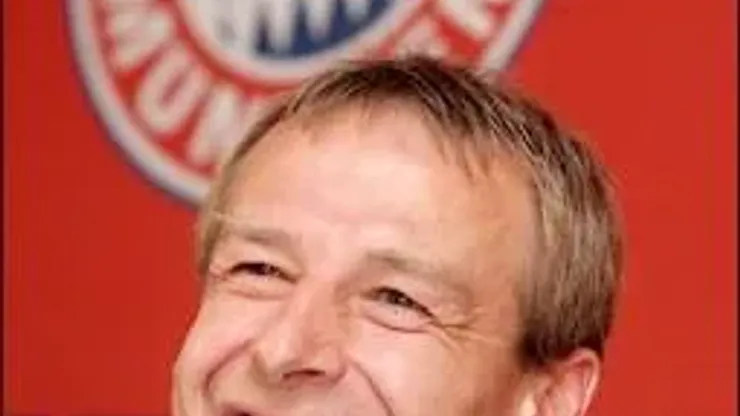Klinsmann’s story is actually a familiar one, stop me if you’ve heard it before. Things began with a stellar striking career that included stops in Germany and England. Eventually the national team came calling, which meant leading the squad at a major international tournament in Europe. Regardless of where he’s been, either in front of the goal or in front of the bench, goals have rarely been scarce. The much lauded swashbuckling style was often criticized as an example of tactical naïveté rather than strategic brilliance. Enough is enough. The parallels between Kevin Keegan and Jürgen Klinsmann are obvious (and ominous some Bayern München fans might say). Any attempt at predicting Klinsmann success with Bayern based on Keegan would be spurious at best. Klinsmann is in a much better position relative to his Geordie twin. But even before the season begins there are a number of challenges, some immediate, others long-term, that must be addressed:
•Underused Want-aways. Given both their excellent run of form at Euro ’08 and their regular exclusion from the Bayern first team, it is no surprise that Schweinsteiger and Podolski (in particular) have sought out lucrative opportunities for playing time elsewhere. As coach of the national team Klinsmann relied heavily on them, so the two should no doubt find themselves more appreciated than under outgoing trainer Ottmar Hitzfeld. Nevertheless Klinsmann has recently commented on the team’s website of Podolski’s value, noting first that he plans on bringing Lukas “up to the next level,” before definitively ending transfer speculations. “Lukas still has a two year contract here, it doesn’t even come into question. I will make a large effort so that Lukas feels comfortable at Bayern München,” said Klinsmann.
•European Underachievement. A comfortable Podolski is a natural goalscorer, as he showed throughout last year’s UEFA Cup. With a return to Champions League football, an in-form Podolski would significantly increase Bayern’s likelihood to progress deep into the tournament. Otherwise they are likely to continue their recent trend of European underachievement. Not since their victory in the 2000-01 edition of the Champions League have they come close to lifting the trophy. Much like their greatest European rivals, Real Madrid, Bayern are in danger of becoming irrelevant in the latter stages as teams from England and Italy continue to monopolize the competition.
•Choosing a New Captain. The retirement of Oliver Kahn has provided Klinsmann with an excellent opportunity to shape the direction of the club. The captain must necessarily reflect the best mixture of leadership and virtues that a trainer wishes to emphasize on the pitch. Will Klinsmann’s Bayern be the steely determination of midfield hardman Mark Van Bommel or the attacking panache of fullback Philipp Lahm? While there are a multitude of options, choosing Van Bommel puts the armband in the midst of the action, in line with Klinsmann’s choice of Ballack as Germany captain. The choice of Lahm on the other hand would signify both a commitment to an aggressive style of play while simultaneously emphasizing the importance of homegrown players, in a nod towards tradition. With Van Bommel on the wrong side of 30, Klinsmann’s choice (in our hypothetical binary situation) could also be a clue as to how long he wishes to stay at Bayern…
•Ennui or Extended Stay? There’s no question that, alongside his extraordinary ability, Jürgen Klinsmann will be remembered for his journeyman career. His talents blessed the shores of Germany, Italy, France, England and even the United States in 2003 (as Jay Goppingen) before returning to the Fatherland. After his initial stint with VfB Stuttgart lasting from 1984 to 1989 he hasn’t stayed longer than 3 years at any one club. Will this trend continue at Bayern (again)? Should he decide to stay long-term he faces the unenviable prospect of trying to escape the shadow of Ottmar Hitzfeld, the doyen of German coaches.
If he wants to challenge Hitzfeld’s legacy, he’ll need to do so by winning a title almost immediately. Since Bayern were first promoted to the Bundesliga in 1965 there have been 16 different gaffers. 6 of these did not win a title in any form (although Giovanni Trapattoni, in his second spell, won the 1996-97 Bundesliga crown and the 1997-98 DFB-Pokal). None lasted longer than two years before being sacked. It is difficult to imagine Bayern’s board being satisfied with the new Germany’s approach Klinsmann instituted, win or lose but play beautifully and make friends along the way, if not accompanied by new hardware for their trophy cabinet.
What do you think? Will Klinsmann thrive under the Bavarian sun? Or will he wilt beneath the media glare of overblown expectations?
Next week: Jürgen Klopp at Borussia Dortmund
200+ Channels With Sports & News
- Starting price: $33/mo. for fubo Latino Package
- Watch Premier League, Women’s World Cup, Euro 2024 & Gold Cup
The New Home of MLS
- Price: $14.99/mo. for MLS Season Pass
- Watch every MLS game including playoffs & Leagues Cup
Many Sports & ESPN Originals
- Price: $10.99/mo. (or get ESPN+, Hulu & Disney+ for $14.99/mo.)
- Features Bundesliga, LaLiga, Championship, & FA Cup
2,000+ soccer games per year
- Price: $5.99/mo
- Features Champions League, Serie A, Europa League & Brasileirāo
175 Premier League Games & PL TV
- Starting price: $5.99/mo. for Peacock Premium
- Watch 175 exclusive EPL games per season






